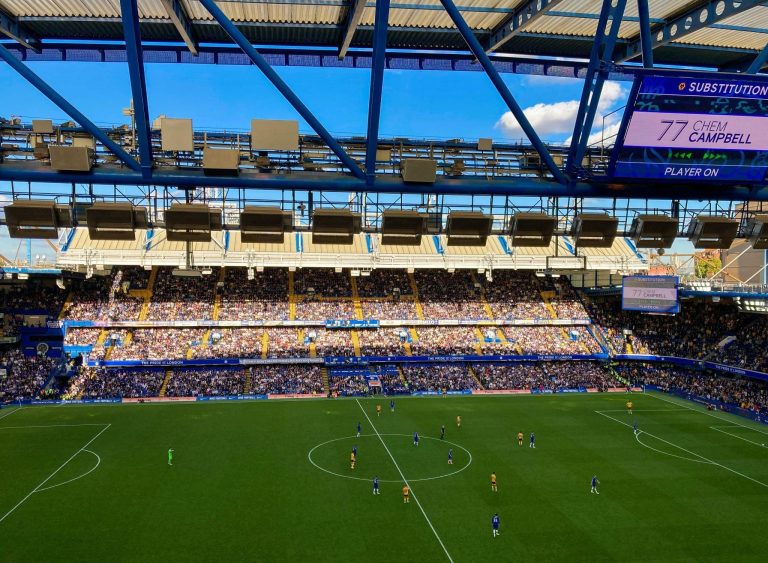Frank Lampard needed a win, and his team provided. The stoppage-time goal gave the coach a much-deserved sigh of relief and infused the team with fresh energy. That one goal may just be the tipping point for the team teetering on a knife’s edge. Ellis Simms may have secured the match against Sheffield, but Frank Lampard is now looking to secure the future.
Simms Steps Forward When It Matters
Both goals came from Simms, and both came at an ideal time. The first came in the opening quarter of an hour, a clean header following well-organised buildup play. But it was his second, deep in injury time, that defined the night. He forced an error from the goalkeeper, stayed alert, and slotted home. Simple on paper. Much harder in real time.
Simms has become more than a squad striker. Lampard called him “low-maintenance,” a description that only partly explains his value. He trains well, doesn’t make noise, and has started finding goals when it counts. Those traits don’t always grab headlines, but in a long Championship season, they make a difference. Players who don’t need constant attention are rare.
Simms is one of them, and the fans are delighted. Turning the tide does wonders for betting odds, and Simms and the entire team’s performance is improving their odds. Fans looking to bet safely without GamStop limits and enjoy lavish bonuses and above-average wagering limits can continue to do so while cheering for their team. A second wind has hit their sails, and it could be smooth sailing from now.
But the most important part about Simms’ development doesn’t get said often enough in football discourse. Not every player’s development is explosive. Some improve gradually, better positioning, smarter movement, clearer decision-making. That’s Simms lately. Lampard seems to know exactly what he’s getting from him now.
A Match Won at the Edges
This wasn’t an easy win. Sheffield Wednesday had them on the back foot for long spells. Coventry’s midfield sat deep. Their passing wasn’t always crisp, and the pressure built, especially late in the second half. Still, the team held firm.
What stood out wasn’t defensive structure, it was individual commitment. Tracking back when legs are tired, staying in shape, and being smart in second-ball moments. There’s no tactical substitute for grit like that. Coventry didn’t play a flawless match, just like in their 1-0 match against Portsmouth, far from it. But they responded to stress with focus, not panic.
Lampard’s comments afterwards made that clear. He spoke less about systems and more about spirit. Not in a cliché way, but as a manager recognising that the win came from effort and execution when it mattered. There are games where clean sheets and ball possession define a performance. This one wasn’t like that. This was about managing pressure and seizing moments.
Respect for the Opposition
One thing Lampard didn’t do was diminish the opponent. He called Sheffield Wednesday “top-class” and praised Barry Bannan specifically. That matters. Coaches don’t throw compliments around unless they’re earned. And Bannan, who has been a steady influence for Wednesday for years, was central again, controlling tempo, threading passes, keeping Coventry honest.
This kind of recognition signals something about Lampard’s view of the game. He’s not just managing his squad; he’s observing the broader context. Respecting the opposition doesn’t make a win less meaningful. If anything, it deepens it. It shows he understands the challenges his team is overcoming, not just the outcome on the scoreboard.
And maybe there’s something more subtle at play here. Lampard’s own background as a player comes with a certain expectation of standards. He’s seen top-level football from the inside. Praising opponents like Bannan isn’t flattery, it’s football literacy. He knows what quality looks like.
Learning to Win Ugly
Coventry didn’t win this match because of elegant football. They didn’t win by controlling possession or outpassing their opponent. They won because they stayed in the game. They reacted in key moments. Sometimes that’s enough. Lampard currently is on the same track as City manager Mark Robins who won manager and player of the month awards.
That doesn’t mean they’re abandoning style. It means they’re learning that results sometimes require adaptation. Teams that rise late in the Championship season usually have both sides of the coin. They can be sharp and fluid when conditions allow, and they can grind through when legs are heavy and the pitch is worn down. This was a grind-through kind of win. Not pretty. But undeniably valuable.
Lampard’s Voice Behind the Scenes
What’s slowly becoming clear is that Lampard is starting to shape this team in subtle but visible ways. He’s not the loudest manager in the league, like the New Southampton FC manager, not the most demonstrative, but there’s a steadiness behind his comments. He doesn’t over-celebrate wins or spiral after setbacks. That tone might be helping the squad keep their heads level. And given the noise that often surrounds managerial jobs at this level, keeping players grounded could be one of his biggest contributions.
In post-match interviews, Lampard tends to focus on basics, effort, positioning, and responsibility. There’s something deliberate in that. He doesn’t inflate narratives. He talks like someone who knows football gives and takes without warning. That kind of realism often builds trust. Players know when they’re being fed lines. And from the outside, at least, Lampard seems to be avoiding that trap.



